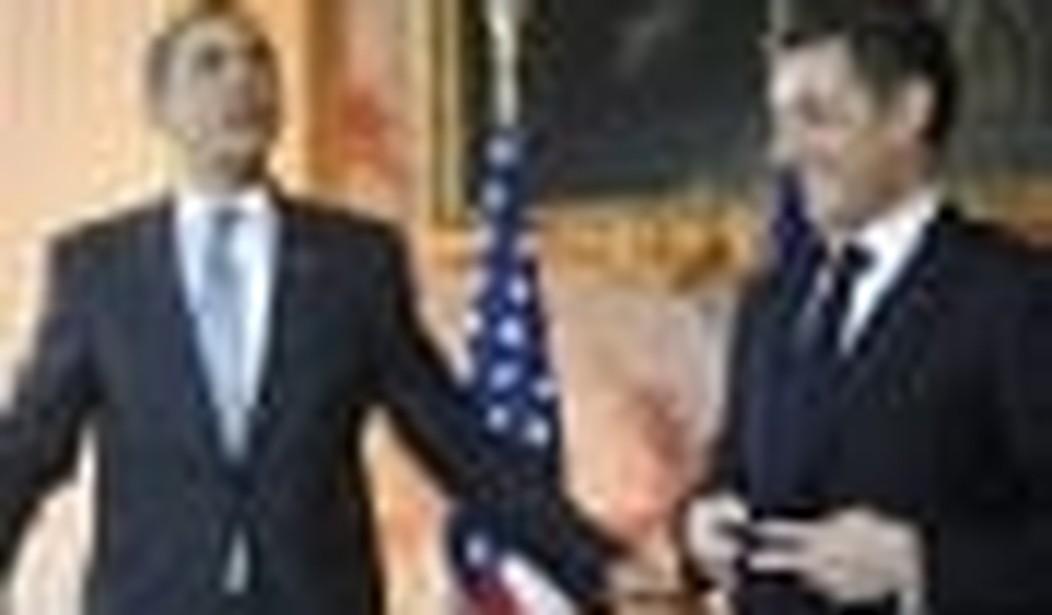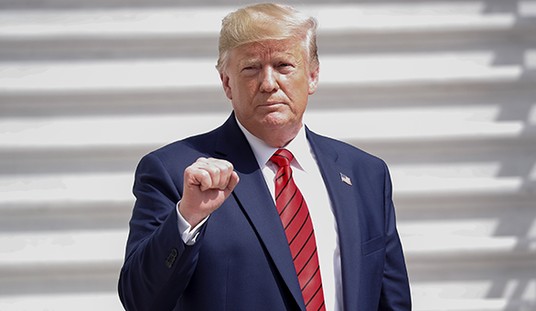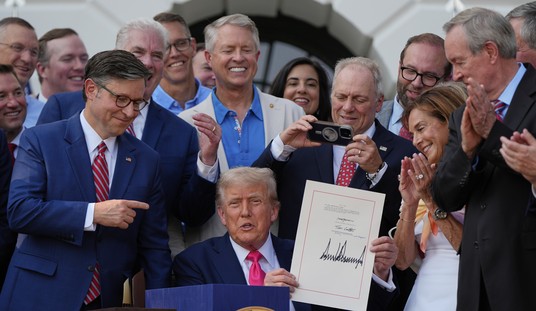U.S. President Barack Obama’s debut in European summitry has been good for Europe but bad for America. While a highly deferential Obama gave in to all of the negotiating demands established by the Europeans, the Europeans in turn exploited Obama’s naïveté and refused to concede to any of his. Indeed, Obama not only allowed the Europeans to set the agendas of the recent G-20 and NATO summits, but in his zeal to curry favor with the Europeans, Obama even apologized for American primacy. Obama’s diplomatic philosophy, which seems to put the interests of other countries ahead of those of the United States, could be called the “Obama Doctrine.” If it is carried out in practice to its logical conclusion, it will have the long-term effect of gradually transferring U.S. geopolitical power and influence to Europeans and other American rivals.
Obama started his trip to Europe by proclaiming that “I would like to think that with my election, we’re starting to see some restoration of America’s standing in the world.” He then legitimized European anti-Americanism by saying that the United States was sorry for wrecking transatlantic relations, as if the Europeans were innocent victims of U.S. oppression; Obama told an audience of 3,000 giddy European students that “America has been arrogant and has even ridiculed” its European allies. Later, Obama followed up by declaring that “I believe in a strong Europe,” even though European integration is at base a project that seeks to counterbalance American power on the global stage. Obama topped it all off by offering pacifistic Europeans a utopian vision of a world free of nuclear weapons.
Maybe Obama thought his new “smart power” approach to U.S. diplomacy would woo his European counterparts into reciprocating their love for America. But defiant European leaders shunned Obama’s romantic advances, insisting instead on a redistribution of global power.
British Prime Minister Gordon Brown said the international economic order dominated by the United States was finished. “The old Washington consensus is over,” Brown declared. “I think a new world order is emerging with the foundation of a new progressive era of international cooperation,” he said, referring to an incipient globalism that seeks to demolish American sovereignty.
French President Nicolas Sarkozy and German Chancellor Angela Merkel declared that Europe would no longer follow America’s lead on setting the global economic agenda. Sarkozy and Merkel called for a “new financial architecture” that would subject the U.S. financial system to European regulation. They added that their demands were not negotiable.
Obama obliged by stroking Sarkozy’s famously huge ego. Obama said Sarkozy was “courageous on so many fronts, it’s hard to keep up” and praised him for displaying “initiative, imagination, creativity” in tackling difficult problems. Sarkozy replied with Gallic generosity by announcing that he was prepared to make a big sacrifice: France would agree to take one single detainee from Guantánamo Bay as soon as the terrorist detention camp is shut down, which may be never. “We can’t condemn the United States because they have that camp and then wash our hands of it once they close it. That’s not what being allies is about,” Sarkozy declared. In the same breath, Sarkozy announced that France would not be sending any more combat troops to help NATO allies in Afghanistan.
Which begs the question: What did Obama accomplish during his trip to Europe?
Brown said the leaders of the G-20 struck a “historic” deal to end the global recession by pumping more than $1 trillion into the world economy. But critics say this is nothing more than a rhetorical commitment to provide money that has already been promised. In reality, no new money will be injected into the system. What’s more, leaders failed to agree on plans for a new globally-coordinated fiscal stimulus package, as Obama had insisted. Instead, Obama settled for a vague pledge that the leaders of the G-20 would do “whatever it takes” to revive the global economy.
On the other hand, the G-20 did plant the seeds for a new era of global socialism. They agreed to global financial regulations that Sarkozy said turned the page on the Anglo-Saxon model of free markets. And point 19 of the final communiqué of the G-20 summit seems to be pushing the world one step closer to a global currency and a global central bank, all designed to replace the U.S. dollar as the international reserve currency.
Meanwhile, NATO leaders rebuffed Obama’s plea for a significant boost in combat troop numbers to fight the insurgency in Afghanistan. Obama tried to put a positive spin on their lukewarm commitment to send just 5,000 extra troops to Afghanistan, describing it as a “significant and strong down payment on the future of NATO.” But 3,000 of the additional troops will serve as short-term security for elections that are set for August, and the remaining 2,000 will work as trainers to the Afghan National Army and police force. In other words: “Don’t call us, we’ll call you,” Europeans told Obama.
At the same time, Sarkozy announced that France would fully rejoin NATO, but only on the condition that Obama endorses an independent European defense capability. Many observers suspect that Sarkozy is hoping to increase French influence within the alliance in order to “Europeanize” it, while at the same time building an independent European Security and Defense Policy (ESDP) — a long-cherished ambition of many European elites. In other words, critics say, France will now be perfectly placed to destroy NATO from within. If Sarkozy succeeds in creating an independent EU military, it will be at the expense of NATO, which in turn will dilute American influence in Europe. And that is, of course, what it’s all about.
The import of Obama’s pliability was not lost on the European media. In France, for example, Le Monde, referring to the G-20 summit, said: “Even if the birth proves painful, in London, it is well and truly a new world that has emerged before our eyes. A less Anglo-Saxon and less liberal world. … Unlike his predecessor, Barack Obama accepts this.”
In Germany, the Financial Times Deutschland published an articled titled “Friendship is a One-Way Street.” It said: “It is no surprise that Europeans have renewed a friendship that so far has been like a one-way street. From their perspective, they were among those who had the right attitude vis-à-vis Obama’s predecessor. Which is why, in their view, it’s time for the United States to come over to their side. And Obama has done so, from regulation of the financial markets to climate policy. On the other hand, Europe has hardly budged.”
Even the American media has picked up on what Obama really did in Europe. According to the Washington Post: “Barack Obama has proved in the past few days that he can work smoothly and productively with a wide range of foreign leaders — provided that he allows them to set the agenda. … What’s striking about Obama’s diplomacy, however, has been his willingness to embrace the priorities of European governments, Russia and China while playing down — or setting aside altogether — principal American concerns.”
More ominously, the UPI highlights the true danger behind the emerging Obama Doctrine: “If [Obama] bows to the Paris-Berlin diktat, then his prestige as leader of the United States and the Western world will be crippled and the leaders of France, Germany, and other European nations will be encouraged to defy him further.”
Europe may be rife with self-professing Obama-worshippers, but their devotion has been shown to be largely superficial. Obama, on the other hand, has proved himself to be a true disciple of Europe. Obama may believe that ceding American leadership will win him new friends. But his trip to Europe proves that this is a dangerous illusion.









Join the conversation as a VIP Member